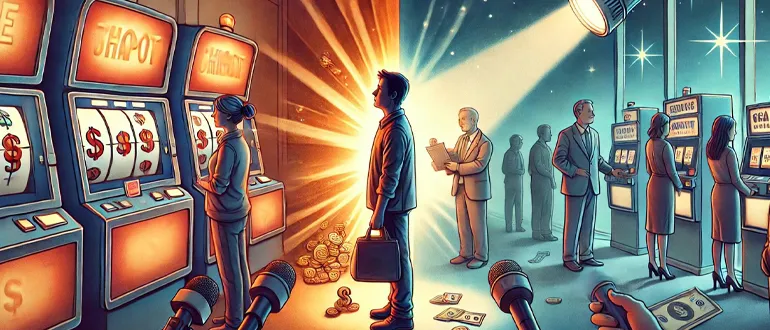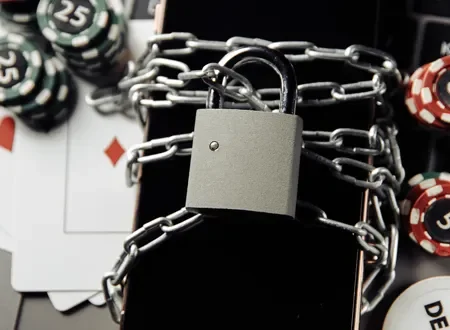
In the world of gambling and lotteries, it’s rare for anyone to walk away from the chance to become instantly wealthy. With millions of dollars or other major prizes at stake, most people imagine how such a windfall could transform their lives. Yet, there are those who have made the unthinkable decision to refuse their winnings. These stories surprise us and provoke reflection on the deeper reasons that might compel someone to walk away from a multimillion-dollar prize. In this article, as an expert, I’ll delve into the most astonishing stories of people who declined their winnings—who they were, why they made such decisions, and what lessons we can learn from their extraordinary choices.
Lottery Winnings Turned Down
Lotteries offering massive cash rewards attract millions worldwide, yet even in these scenarios, some individuals choose to decline their prizes.
Anonymous Winner from the United States
In 2019, a Powerball winner in the U.S. hit an incredible $560 million jackpot but opted to remain anonymous and forgo a significant portion of the winnings.
Reasons for Refusal:
- Protecting Privacy: The winner feared for their safety and privacy, preferring to sacrifice part of the prize rather than face media scrutiny and public attention.
- Legal Complications: Some U.S. states require winners’ identities to be revealed to ensure transparency. In this case, the individual prioritized anonymity over receiving the full amount.
Irish Woman Who Refused €1 Million
In 2015, a woman from Ireland won €1 million in the lottery but declined the prize, citing personal moral beliefs.
Why She Refused:
- Moral Convictions: She expressed that money wouldn’t bring her happiness and could negatively impact her family and lifestyle. She feared it might disrupt the harmony in her life and relationships.
- Avoiding Attention: She also voiced concern that the win would draw unwanted public attention—something she had no desire to endure.
Casino Winnings Declined
Casinos, with their luxurious settings and promises of instant riches, rarely witness people refusing their prizes, yet it does happen.
Italian Man Declines Jackpot in Venice
In 2018, a man in a Venice casino won a sizable jackpot on a slot machine but chose to walk away from the money.
Reasons for Refusal:
- Fear of Debt: The player worried that the prize would result in financial complications due to high taxes on large winnings in his country. He didn’t want to risk giving most of the money away in taxes.
- Feelings of Guilt: He confessed to feeling guilty about the win, recognizing that many others lose money at casinos. He didn’t want his prize to come at the expense of others’ losses.
Las Vegas Player Refuses Progressive Jackpot
In Las Vegas, a player won a $1.2 million progressive jackpot on a slot machine but chose not to claim the payout.
What Happened:
- Payout Conditions: The player hadn’t registered for the casino’s loyalty program, a requirement for claiming progressive jackpots.
- Declined to Contest: Though he could have filed a complaint, the player opted not to challenge the rules and accepted the result, believing he had not met the conditions of fair play.
Common Reasons for Declining Winnings
Turning down a prize is rare and usually tied to specific circumstances. Let’s explore the most common motives behind such decisions.
Fear of Publicity and Unwanted Attention
Many fear that a major win will attract invasive attention from the public, the media, or even criminal elements.
Examples:
- Concerns for Family Safety: Winners worry their loved ones could become targets for fraud or blackmail.
- Desire for Anonymity: The wish to avoid becoming a public spectacle leads some to walk away from life-changing sums.
Moral Beliefs and Fear of Life Changes
A huge win can completely alter one’s life, and not everyone welcomes that transformation.
Moral Perspectives:
- Negative Impact on Family: Some believe the prize could harm their relationships, change personalities, or spark jealousy and envy.
- Preserving a Simple Life: Those content with their current lifestyle and financial stability may choose to forgo the prize to maintain their sense of normalcy.
Legal and Tax-Related Complications
In some cases, winners walk away due to legal issues or tax burdens that make the prize more trouble than it’s worth.
Legal Reasons:
- Exorbitant Taxes: In certain countries or states, taxes on winnings are so high that the net gain is minimal, leading some to reject the prize.
- Eligibility Issues: Some winners are ineligible due to lack of proper registration or not meeting all game requirements, forcing them to relinquish the prize.
Lessons from These Stories
These accounts of declined winnings teach us valuable lessons and remind us that money isn’t always the ultimate solution.
Money Doesn’t Solve Everything. Many who declined their winnings did so because the money didn’t bring them peace of mind or improve their lives. It shows that wealth isn’t a cure-all.
Protecting Privacy Is a Priority. For some, a win meant the end of a quiet life and the beginning of public pressure. Their choice to stay private outweighed the lure of financial gain.
Responsible Play Means Considering Consequences. Anyone participating in lotteries or gambling should be aware of the possible outcomes, including legal issues, taxes, and the impact on personal life. It’s crucial to understand the risks and be prepared.
Conclusion
The stories of people who refused their winnings are as astonishing as they are thought-provoking, challenging our assumptions about wealth and happiness. These examples reveal that winning the lottery or hitting the jackpot doesn’t always lead to a better life. Behind every prize lie emotions, responsibilities, and sometimes fear of change. It’s important to remember that gambling is first and foremost a form of entertainment—and should be approached with awareness of all its potential consequences and risks.












